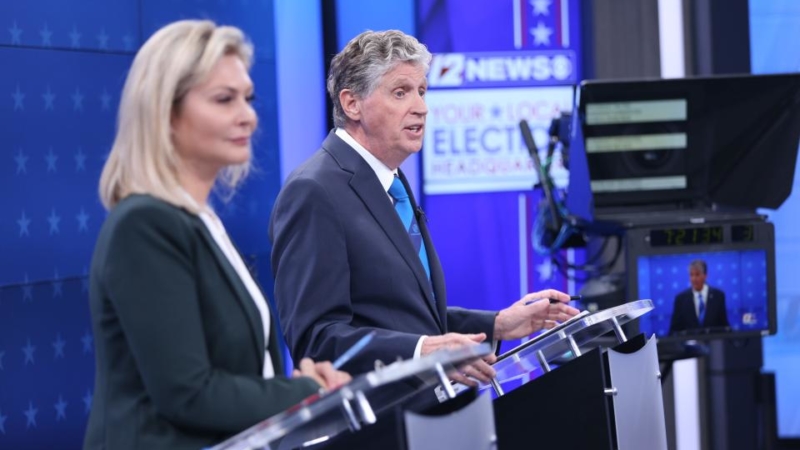Kalus Swings and Misses, While McKee Takes a Base-on-Balls in RI’s First Gubernatorial Debate
In their first debate of the 2022 gubernatorial race in Rhode Island, incumbent Democrat Dan McKee and his challenger, Republican Ashley Kalus, did little to inspire voters that a better quality of life might be ahead if they were to be elected governor.
McKee, who as Lieutenant Governor became Governor 18 months ago when the elected governor, Gina Raimondo, took a job with the Biden administration in Washington, DC as US Commerce Secretary, appeared listless in the debate, following what was described as a minor medical procedure over the weekend.
Kalus, the challenger who is trailing by 10 points in recent polls, and who only recently established residence in Rhode Island, was far more energetic, however often swinging wildly at seemingly minor political points.
Neither candidate provided an aspirational vision for Ocean Staters or provided any kind of over-arching narrative that might define their respective campaigns. McKee, whose suit appeared a few sizes too big, often defended his record with overly-bureaucratic, sounding and data-driven responses. The sharp-dressed Kalus, who again appeared to lack a firm understanding of public policy issues, instead tried to raise questions about McKee’s competence and the FBI “investigation” into one of his contract awards.
PROGRAMMING NOTE: For more analysis and detailed discussion of specific debate topics, on-demand after 4:00 PM Wednesday, tune-in to In The Dugout with Mike Stenhouse on The Ocean State Current, when former gubernatorial candidate Ken Block joins Sten with his views.
Kalus, who clearly wanted to be on the attack, often sounded a bit shrill and appeared to be flailing at times, while McKee’s “aw shucks” and measured attitude was completely un-inspiring for someone who seeks to lead the state.
In baseball terms Kalus swung and missed on the issues she tried to attack, while failing to swing at all at a couple-of softball issues that were teed up for her. McKee, basically, took a base on balls, with weak efforts to attack his opponent, to defend his administration, or to give voters a compelling reason to vote for him.
Check back to this article, which will soon be updated with an analysis of some of the specific questions and issues that were posed by Tim White and Ted Nesi, the WPRI-12 moderators of the debate.



